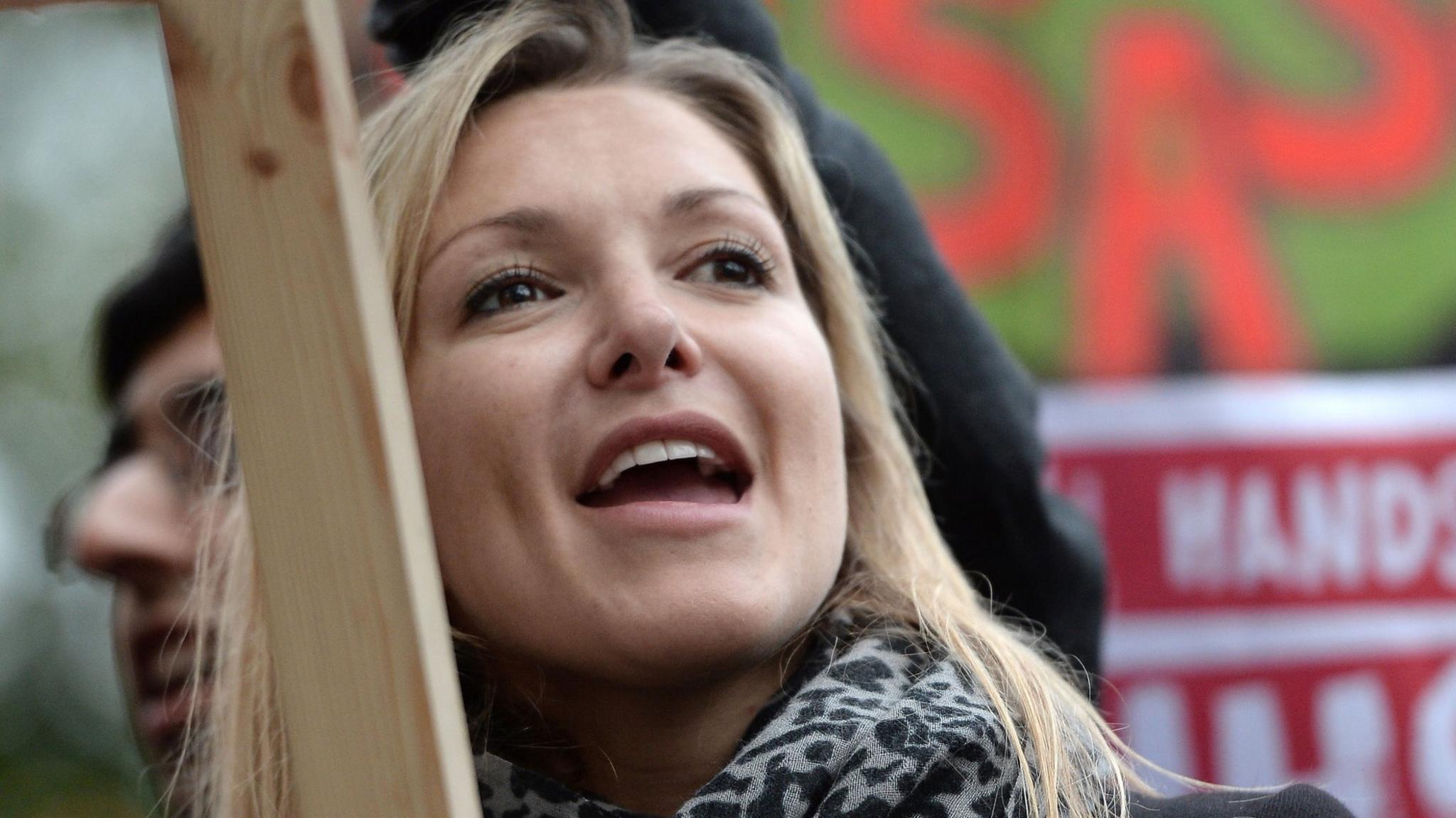Junior doctors' strike: Treatments postponed amid walkout
- Published
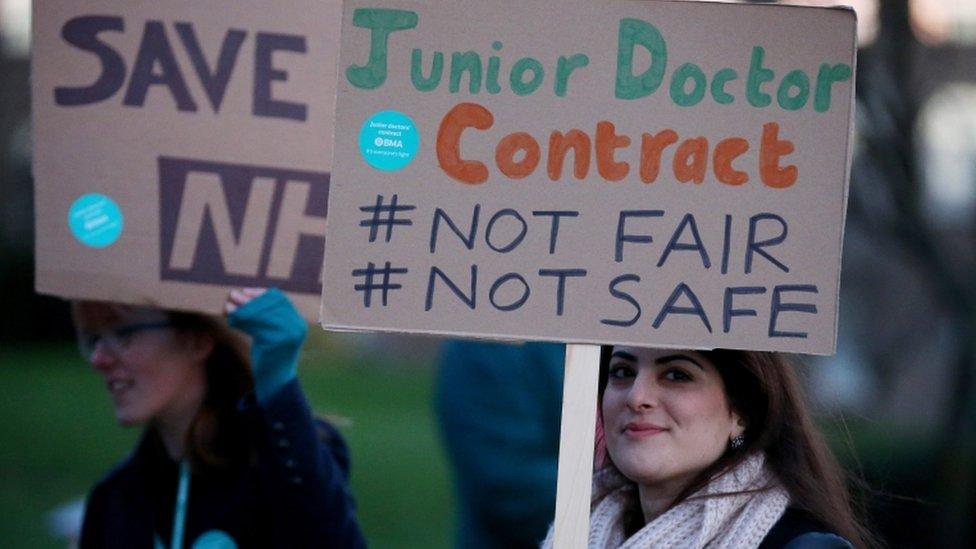
Junior doctors picket outside the Queen Elizabeth Hospital in Birmingham
Hospitals in England are facing major disruption as junior doctors have gone on strike in a dispute with the government over a new contract.
The doctors are providing emergency cover only during the 24-hour walkout, which got under way at 08:00 GMT.
The NHS has so far postponed 4,000 routine treatments - about one in 10 planned - including knee and hip ops.
A West Midlands hospital has also asked doctors to come off the picket line to help after a surge in patients.
Bosses at Sandwell raised the alarm shortly after the strike got under way, saying beds were filling up and they were struggling to discharge patients.
But the British Medical Association has so far refused to agree to the request, arguing it is not clear whether it qualifies as a major incident.
The strike - the first of two planned for the coming weeks - has gone ahead despite a last-minute plea from Prime Minister David Cameron for doctors to call off the action, warning it would cause "real difficulties for patients and potentially worse".
The BBC's Nick Triggle looks at why junior doctors are going on strike
The walkout comes after talks between the union and government failed to reach agreement on the contract. The BMA is concerned about pay for weekend working, career progression and safeguards to protect doctors from being overworked.
But ministers have argued the current arrangements are outdated and changes needed to improve standards of care at the weekend.
In preparation for the action, hospital bosses across the country had:
postponed 4,000 routine treatments, such as knee and hip replacements, some of which are on the days before and after the walkout
cancelled many more appointments, check-ups and tests
prioritised cancer care to minimise the risk to those needing vital surgery and treatment
told patients to use alternatives to hospital on the day of the strike where possible, such as pharmacies, NHS 111 and GPs
There are more than 55,000 junior doctors in England, a third of the medical workforce, although just over 37,000 are BMA members.
Hospital consultants, GPs and other staff including nurses and midwives are in work.

What is the dispute about?
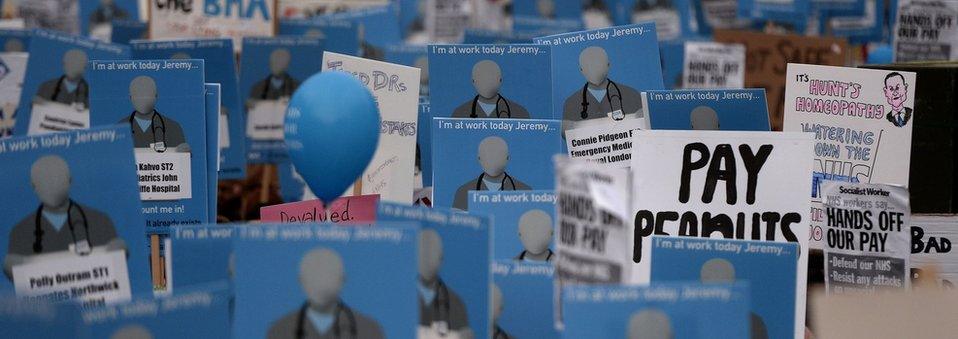
The row between junior doctors and the government is over a new contract
Talks broke down in 2014, but the dispute has escalated since the summer after ministers said they would impose the deal
Ministers offered doctors an 11% rise in basic pay last year, but that was offset by curbs to other elements of the pay package, including payments for unsociable hours - they have maintained there is not extra money for junior doctor pay
The government says the changes are needed to create more seven-days services, but the BMA warns safeguards to keep a lid on excessive hours are being weakened
The union balloted its members in the autumn, and 98% of those who voted backed strike action
Talks restarted in December, leading to three days of strikes being called off, but these have so far failed to reach a breakthrough, which is why strikes are taking place

Christopher Hix, from the Patients Association, said patients were caught in the middle of a dispute which had been badly handled by both sides.
"It's very hard to believe that junior doctors not being at their posts isn't going to have a serious adverse effect on patients and patient safety," he said.
But Anne Rainsberry, from NHS England, said "robust" plans were in place to protect patients.
"As ever, the safety and care of patients is our top priority," she added.
Shadow chancellor John McDonnell, who joined the picket line at St Thomas' Hospital in London, told the BBC: "These people don't want to go on strike, they want to look after their patients, and we're just saying to Jeremy Hunt, 'Get back round the table now.'"
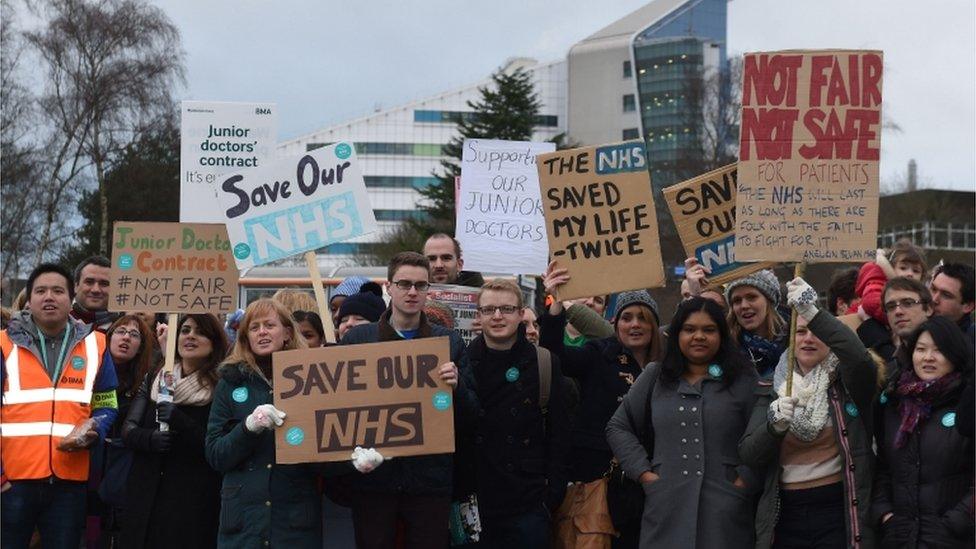
Junior doctors on the picket line outside Queen Elizabeth Hospital in Birmingham
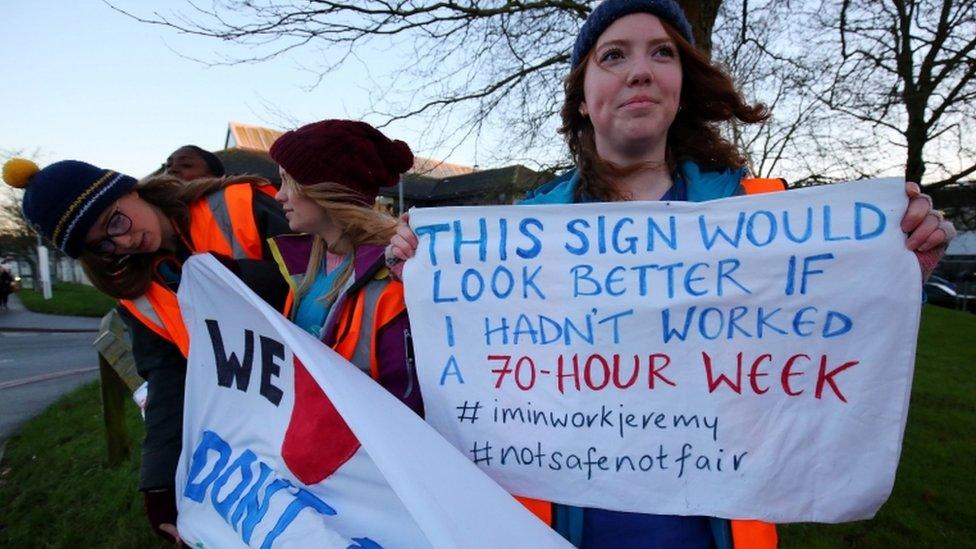
Junior doctors on the picket line outside Maidstone Hospital in Kent
BMA's Dr Mark Porter: Doctors left with no alternative but to strike
BMA leader Dr Mark Porter said: "We sincerely regret the disruption that industrial action will cause, but junior doctors have been left with no option.
"It is because the government's proposals would be bad for patient care as well as junior doctors in the long term that we are taking this stand."
This is the first strike by junior doctors over pay and conditions since 1975, although they were involved in the 2012 walkout over pensions.

- Published6 April 2016
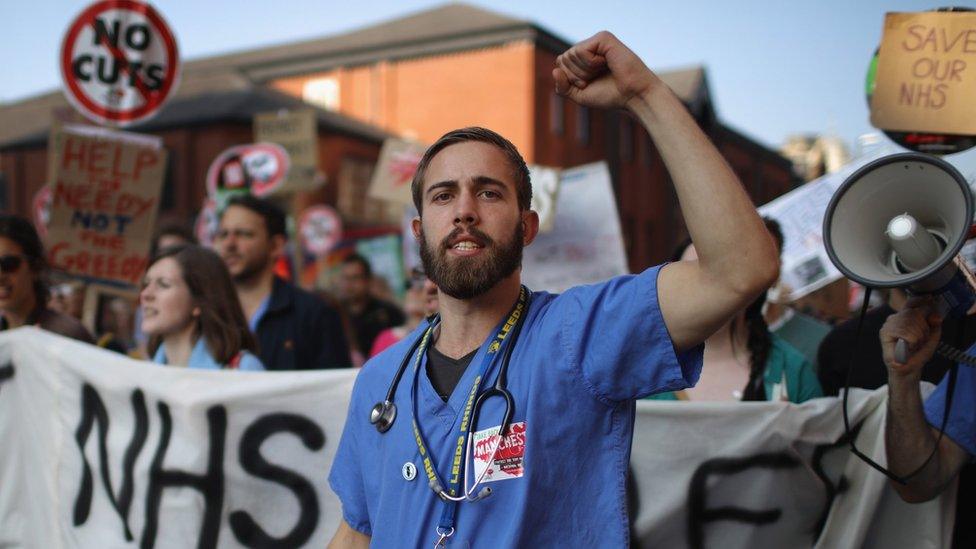
- Published11 January 2016
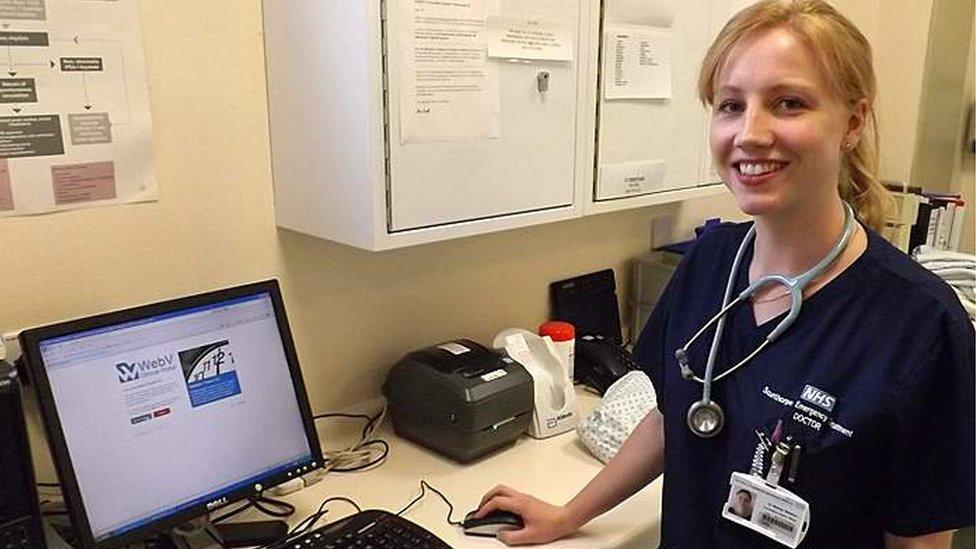
- Published11 January 2016

- Published22 April 2016
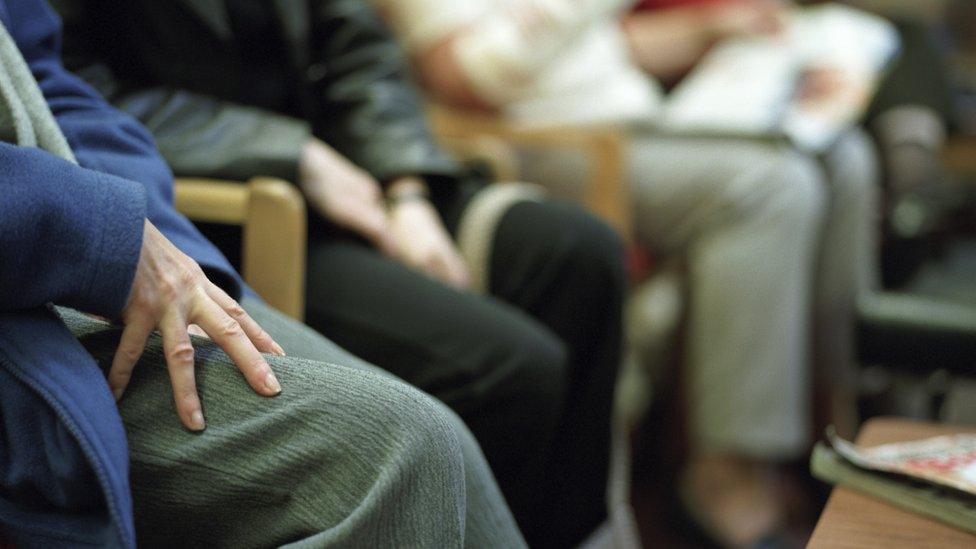
- Published11 January 2016
